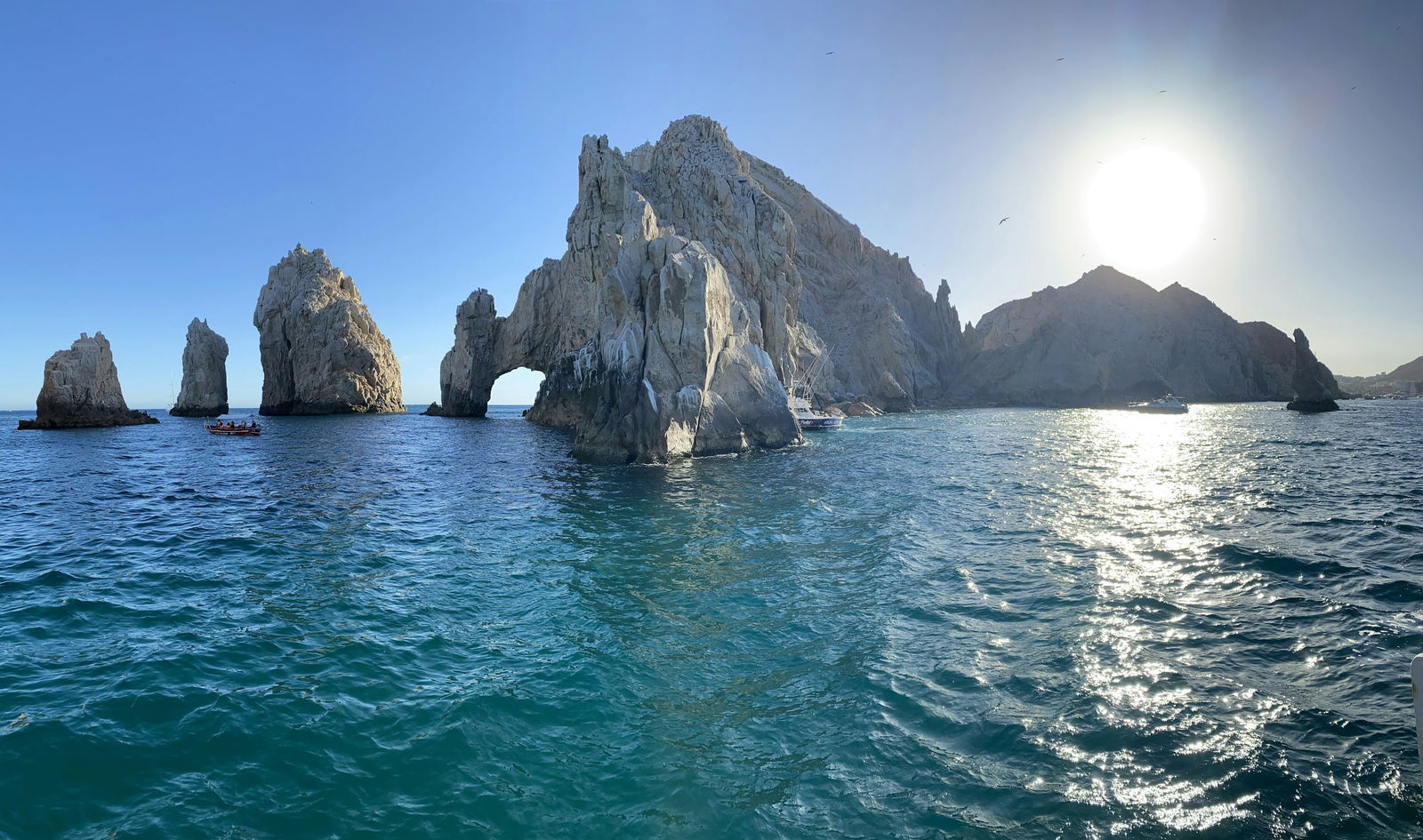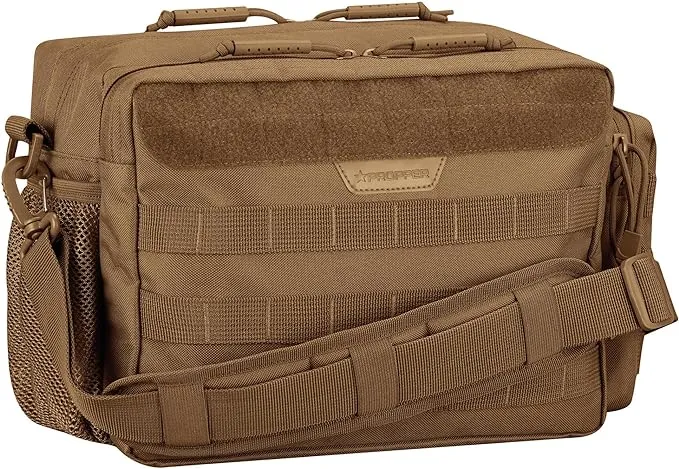How carrying less can mean traveling more sustainably
 Unsplash
Unsplash Unsplash
Unsplash· 10 min read
The weight we carry on the road is more than just physical — it’s environmental. Every suitcase packed, flight taken, and product purchased leaves a trail behind us, especially in a world increasingly aware of climate change and resource scarcity. But there’s a growing movement among conscious travelers: a shift toward simplicity.
On a recent press trip to Los Cabos, Mexico — a region grappling with water scarcity and tourism pressures — I tested the idea firsthand. By traveling light, choosing reusable over disposable, and engaging mindfully with my surroundings, I found not only greater ease but a more profound sense of purpose.
A heavier suitcase might seem like a personal inconvenience, but its impact ripples outward. More baggage weight means increased fuel use on flights. Excessive packing leads to over-consumption, fast fashion, and unnecessary waste. Plastic-wrapped travel-size toiletries, multiple shoe options, and quick-buy impulse items from tourist shops often end up in landfills.
According to the International Council on Clean Transportation, the average long-haul flight generates around 0.15–0.25 kilograms of CO₂ per passenger per mile, with emissions rising for heavier aircraft loads. Multiply that by millions of trips per year, and the burden becomes undeniable.

Photo by Shahrzad Kosari on Unsplash
Los Cabos, a sun-drenched oasis on the southern tip of Mexico’s Baja California Peninsula, is a region where the desert meets the sea — and where water is often more precious than gold. While visiting eco-conscious resorts and exploring inland communities, I became acutely aware of how travel choices — especially around consumption and waste — impact fragile ecosystems.
Local businesses are adapting. Many hotels have banned single-use plastics, and filtered water dispensers have replaced plastic bottles. Refillable toiletry stations are now the norm in higher-end accommodations, and several restaurants compost food waste or work with local farmers for sourcing.
By packing a collapsible water bottle, reusable tote, and just two sets of versatile clothing, I avoided contributing to the single-use problem — and gained something unexpected: freedom.
My favorite ensemble for press trips includes my safari jacket for cool weather and planes, zip-off hiking pants, and quick-dry golf shirts. It’s easy enough to dress up or dress down an outfit with this basic outfit.
A curious thing happens when you travel light — you slow down. Without bulky bags or overflowing itineraries, you begin to notice more: the scent of salt on the breeze, the rhythm of conversations in open-air markets, or the craftsmanship behind handmade pottery at a roadside stand.
On a guided hike through the Sierra de la Laguna mountains, I wore the same lightweight trail shoes I had flown in with — chosen for both airport and trail comfort. With only a camera, sunscreen, and water in my bag, I was unencumbered and more engaged. Our local guide, Martín, spoke about the importance of respecting the land, not just admiring it. “Travel isn’t about taking from a place,” he said, “but giving your attention to it.”

Unisex Tactical Bail-Out Bag — photo courtesy of Propper Uniform
One of my favorite bags I use to hold my 13" MacBook Air, Nikon DSLR, water bottle, notepad, and multiple pens, along with sunscreen, etc. This multi-use bag is suitable for travel on the plane, hiking, and moving about. Big enough to hold small purchases, or to empty and pack into my small carry-on suitcase.
Traveling light doesn’t mean sacrificing comfort — it means being intentional. Here’s what worked for me:
• Neutral clothing: Quick-dry, versatile shirts and pants that layer well
• Multi-use footwear: One pair of walking shoes doubled as hiking and dining footwear
• Refillable bottles: Insulated, collapsible, or clip-on bottles save money and plastic
• Digital planning: Boarding passes, guides, and reading stored on a phone/tablet
• Reusable gear: A bamboo cutlery set, a cloth napkin, and a reusable bag proved handy
Items I left behind — and didn’t miss — included a second pair of dress shoes, paper notebooks, and heavy camera gear. My DSLR came with a small prime lens and no tripod. Most of my snapshots came from my iPhone, further cutting down bulk.
Light travel also means investing your weight — and wallet — where it matters. In Los Cabos, I sought out local cafes, farm-to-table restaurants, and cooperatives offering handcrafted goods. I skipped the chain souvenir shops and beachfront all-inclusives in favor of small establishments where money stays in the community.
Traveling light often aligns naturally with sustainable spending. You simply don’t have the space to accumulate cheap mass-market items. Instead, I chose one keepsake: a small wooden carving from a woman named Doña Maritza, who told me, “Every piece I make is a story. I don’t sell things — I share my work.”
To be clear, traveling light isn’t about deprivation — it’s about intention. It’s a mindset that prioritizes depth over breadth, people over things, and footprints that fade rather than linger.
As climate change accelerates and tourism continues to grow, the choices we make as travelers become ever more significant. Whether you’re flying across oceans or road-tripping through your home state, packing with the planet in mind is one of the simplest, most effective acts of environmental stewardship.
Minimalist travel offers more than just lighter luggage — it opens the door to more sustainable, fulfilling adventures. It invites us to trade convenience for connection and consumption for consciousness. And as I learned in Los Cabos, sometimes the less we carry, the more we truly bring back with us. Leave nothing but footprints, and leave with many memories, not cheap souvenirs.
this article is also published on Medium. illuminem Voices is a democratic space presenting the thoughts and opinions of leading Sustainability & Energy writers, their opinions do not necessarily represent those of illuminem.
illuminem briefings

Shared Mobility · Tourism
illuminem briefings

Tourism · illuminemX
Steve Harding

Tourism · Wellbeing
The Telegraph

Tourism · Climate Change
CNN

Tourism · Social Responsibility
Le Monde

Climate Change · Tourism